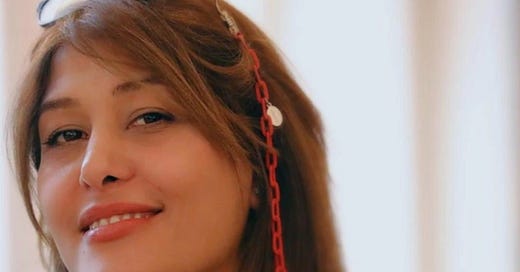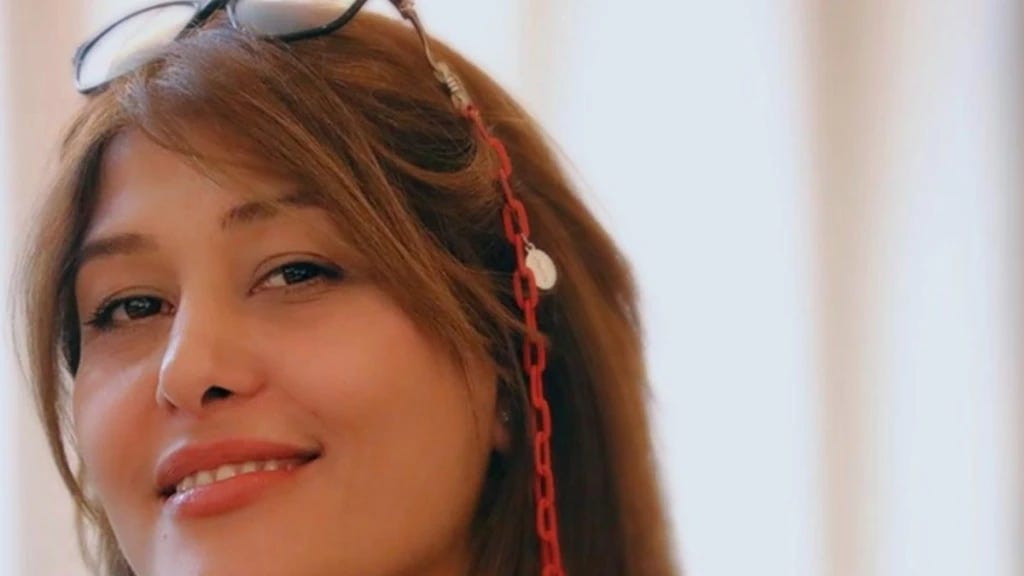Rana Soleimani: Freedom is not achieved through war
The Stockholm-based Iranian feminist writer discusses the effects of illegal Israeli air strikes on Iranian society, the future of the Iranian nuclear ambitions, and the reform movement in Iran
Vladimir Mitev:
Rana Soleimani is an Iranian feminist writer, journalist and intellectual who has lived in Sweden since 2014. She is currently the host of a programme on women's issues on a Stockholm-based Kurdish television channel. She is also the author of several novels dealing with difficult issues related to gender, identity, refugees and Iran.
In an interview with the Persian Bridge of Friendship, Rana Soleimani described the potential war between Israel and Iran as not being a people's war in either country. She added that freedom does not begin with bombing, and that Netanyahu’s actions create obstacles to the domestic Iranian democratic movement. She also outlined the principles of progressive change in Iran.
Rana Soleimani: Iranian female intellectuals have prepared the soil for the ongoing “feminist revolution”
Vladimir Mitev, The Persian Bridge of Friendship, 22 October 2022
In recent days, we have observed an incredible escalation of hostilities between Israel and Iran. Israel attacked Iran without UN authorisation, resulting in military and civilian casualties. Iran has also retaliated. What is your attitude towards the hostilities that have begun? How are these Israeli strikes viewed by the Iranian diaspora in Stockholm and Sweden?
As a feminist writer and anti-war activist, I believe that the Israeli attacks not only violate international law, but also hinder any peaceful and democratic transition in Iran. Many Iranians living in Sweden, especially in Stockholm, are deeply concerned about these hostilities because ordinary people, especially women and children, are the main victims. This war is not a people's war — not in Israel and not in Iran.
In his speech on the occassion of the launch of the Israeli air strikes against Iran, Benjamin Netanyahu declared that the time of Iranian liberation is approaching. Reza Pahlavi, the heir to the last Shah, has made similar claims. Are these Israeli strikes indeed the beginning of Iran’s liberation? If Iran were to be ‘liberated’, would this mean a return to the dictatorship of the monarchy, or would it represent a move towards a new form of government and social contract?
Freedom does not begin with bombing. Israel’s attacks and the prince’s promises are not signs of liberation; rather, they are repetitions of the cycle of violence that the Iranian people have been victims of for decades. For Iran to be free, this must come from a genuine transition based on the will of the people, justice, gender equality and breaking free from any form of tyranny, whether royal or religious. This must not be a return to the past, but rather the construction of a new, democratic order, which has never been possible in contemporary Iranian history.
The Israeli attacks began after the International Atomic Energy Agency issued a resolution which stated that Iran was not respecting its international commitments regarding its nuclear programme. The future of the Iranian nuclear programme was also a contentious issue in the American–Iranian negotiations, which were suspended following the start of the Israeli attacks. The Islamic Republic of Iran wants to have a peaceful nuclear programme, a right that is afforded to every nation. Iran is also a signatory to the nuclear non-proliferation treaty. However, the devastating Israeli air attacks have led to a situation in which an increasing number of people in Iran are calling for the country to develop nuclear weapons as the only means of defence against what they see as treacherous and untrustworthy Western parties. What is your perspective on Iran's peaceful nuclear programme and the prospect of its radicalisation?
With its secrecy, incompetence and adventurous policies, the Islamic Republic is not pursuing a peaceful programme, but a destructive project that acts against its own people above all else. By using the nuclear issue as a tool for political blackmail, the government has driven the people to the brink of destruction. Instead of prosperity, freedom and development, the nation has received sanctions, isolation, repression and the threat of devastating war. Today, Iran is not on the verge of power, but on the edge of an abyss — and the Islamic Republic poses the greatest threat to the security, life and future of its people.
How are Israeli air strikes influencing the situation on the ground in Iranian society? Are they changing attitudes towards the Revolutionary Guards, whose air defence systems proved to be ineffective? Are the strikes changing the balance of power among the Iranian elite? If Iranians see their country as vulnerable, will they direct their anger towards Netanyahu or their own government?
This war is not about liberation or freedom, but a ruthless game between the dominant powers and the Islamic Republic's ideological ambitions that is engulfing the people in fire and blood. While increasing civilian casualties, Israeli airstrikes have highlighted the country’s vulnerability and exposed divisions and inefficiencies within Iran’s elite and military. This could direct public anger and frustration towards the government and its leaders, who are primarily responsible for the crisis and cycle of violence. However, these attacks cannot replace the accountability and real reforms that Iran needs to overcome the crisis.
Iran has a feminist movement called 'Woman, Life, Freedom', as well as a civil society and protest culture. How likely is it that the Pezeshkian government will introduce political reforms in alliance with Iranian citizens at a time when Iran is in a hot war with Israel? Are Netanyahu's air strikes destroying the prospects of reform in Iran rather than liberating the Iranians?
The Women, Life, Freedom movement, alongside labour unions, teachers, students and civil society activists, is a voice for liberation and change. They know that Iran’s future lies not in war and external imposition, but in the power of the people and a change in attitudes towards extreme nationalism, patriarchy and centralism. Iranian women, especially in these critical times, are both victims and agents of change.
The future of Iran belongs to the women who fight for freedom, strive for peace and relentlessly work to build a democratic, humane society. They are the architects of light in the darkness left by war and warmongering policies. Only the movement of the people can lead Iran to a better tomorrow.





